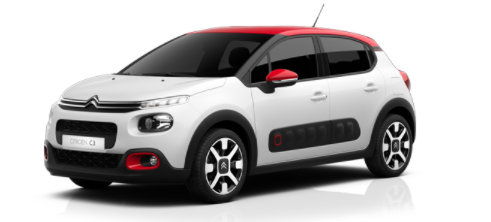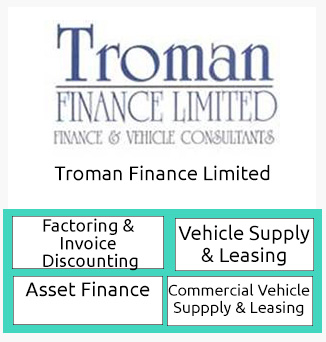Vehicle leasing for cars and vans, is it for you?
Deals like the Citroen’s new C3 from under £120 plus VAT on a lease, or a VW Up! For £99 a month and with small initial payments, are making new car ownership much easier for thousands of people.
Everyone seems to have the word ‘leasing’ on their lips when talking about buying a new car, but I have found that not many people actually understand what it is or what it entails. This can result in panicking and either sticking with ‘what you know’ and going to a dealer, or trudging through the internet getting more and more frustrated with the on-line deals and no one to discuss it with.
This is a shame really, because it’s not that difficult, and with the right advice you can not only save money, but will have a car that is constantly under warranty and is brand new.
Leasing, or more accurately, ‘Contract Hire’ is suitable for the private individual and for businesses.
However, before you fall in love with a new car and start signing on the dotted line, be sure you understand all there is to know about the ‘Pros and Cons’ of vehicle leasing.
Let’s look at the positives first…
Positive aspects of leasing
- Good: Lease payments are lower than loan payments
Compare the monthly payment for a typical lease to the monthly payment for a typical loan, and it doesn’t take a rocket scientist to see that you can get the same car for less money by choosing the lease, because lease payments are usually lower than loan payments.
Or you can drive higher specification vehicle with that monthly budget you had in mind when you lease a car as opposed to getting a loan to buy a car.
- Good: You have a brand-new car every few years
When you lease, you can do so over 1, 2, 3 or 4 years (although 4 years and more is not as popular as you are moving into MOT territory). That means you get a new car every 12, 24, or 36 or 48 months. That will be the very latest model with all that implies, and as such you will never be out of warranty!
Apart from the monthly payments, the only expenses you have in that period will be servicing and tyres/wear items. Even then, you can build in a maintenance cost within the monthly payment.
- Good: No hassles at the end of a lease
When a lease ends, the car is collected from an address of your home or office. If it meets all of the requirements in terms of its condition, you hand over the keys and walk away. That means you don’t need to deal with any of the negotiation and paperwork hassles associated with trading in a car, or selling a car yourself!
- Good: Maintenance and road tax
You can opt to have a fully maintained vehicle, so you know exactly what your car will be costing you every month. However, I would suggest that this would only be sensible for the higher mileage or employee car as the costs are worked out on average maintenance over the years – a two year 8,000 mile car may never need a service or tyres. Leasing will always include road tax as well, so no need to think about that either!
- Good: Additional financial incentives
One major appeal of a lease is the small initial payment required. It is expressed in monthly payments ‘up front’ and forms part of the term, so if it is £100 a month on a 3 x 35, it means there is £300 initially followed by 35 x £100. You can go as low as 1 up-front, to 9 up-front, to a lump sum up front. Obviously the bigger the up-front payments are the lower the monthly payments will be.
- Payments are plus VAT
Not so much a ‘Not so good’ really, but most of the time payments are quoted plus VAT as historically leasing has been for businesses as it can be put against the company books and if it is used for business a percentage of the VAT can be claimed back. If you are not VAT registered then you just need to ensure you are aware of the actual monthly amount including VAT, (which also means the payments up-front remember).
- You don’t own the car
Again, not really all that bad, but a mind-set thing. Leasing is similar to renting. You are agreeing to a long-term rental. You don’t own the car, so that means you can’t do whatever you want with it. When you lease a car, you must maintain it in excellent condition, and you cannot personalise or modify it in a permanent way, although you can wrap it or logo it, as long as you can return it to original when it goes back.
But hang on, if you download iTunes or Spotify, you don’t own the music but you pay for the right to listen to it. Same thing with leasing! Why do you need to own the car anyway? You need to make sure your insurance company are aware of this fact though.
- Mileage limit agreements
When you agree a lease you will also have to decide how many miles you will cover in a year. The lower the mileage the cheaper the monthly payment, but if you exceed it then there is a penalty for each mile over, depending on what car it is, it could be 8p to 12p a mile. You can change the mileage allowance during the agreement if you think you are going to do more though.
- Penalties for wear, tear, and mileage
You need to look after the car as any damage not considered more than fair wear and tear will be costed and billed to you. If your bumpers are all scratched or it is full of shopping dings, dog hair and baby vomit, and the servicing has been missed or you tried to do it yourself, when you hand it back you will be charged body shop rates for repairs, industrial valeting charges to get it to a condition they expected it to be in, and the lost value for not having a full service history.
- Added costs from some leasing companies
Some leasing companies add an ‘acquisition’ or ‘handling’ fee at the start of the lease, or a disposition fee at the end of the lease, or both, which is often not that clear to begin with. It makes the headline monthly payment look great, but leaves a bad taste in the mouth when they present you an invoice you were not expecting.
- You are committed to the cost for the period
When you buy a car outright or using a loan from the garage or your bank, you can sell it and pay off the loan if you encounter financial difficulties and can no longer afford to make the payment. When you lease a car, whilst you can hand the car back, you are committed to paying all the payments, so you will be charged for the remainder of the payments due.
- Endless payments
Unless you eventually buy a car rather than lease one, you’re going to be making monthly payments for the foreseeable future. However, if you always buy new and use the garages finance or a bank loan, it is no different than usual.
So, the big question – Lease or Buy?
Deciding to lease a new car or buy a new car is dependent on who you are, what you value, and how you’re likely to treat the vehicle while you own it. Leasing a new car is appealing in many respects, and as long as you are aware of what you are getting in to. On the whole, it tends to work out cheaper, your car is always under warranty, and you will always have the latest flash new car every few years!
Paul Rainbow is Director of Troman Finance Limited.


